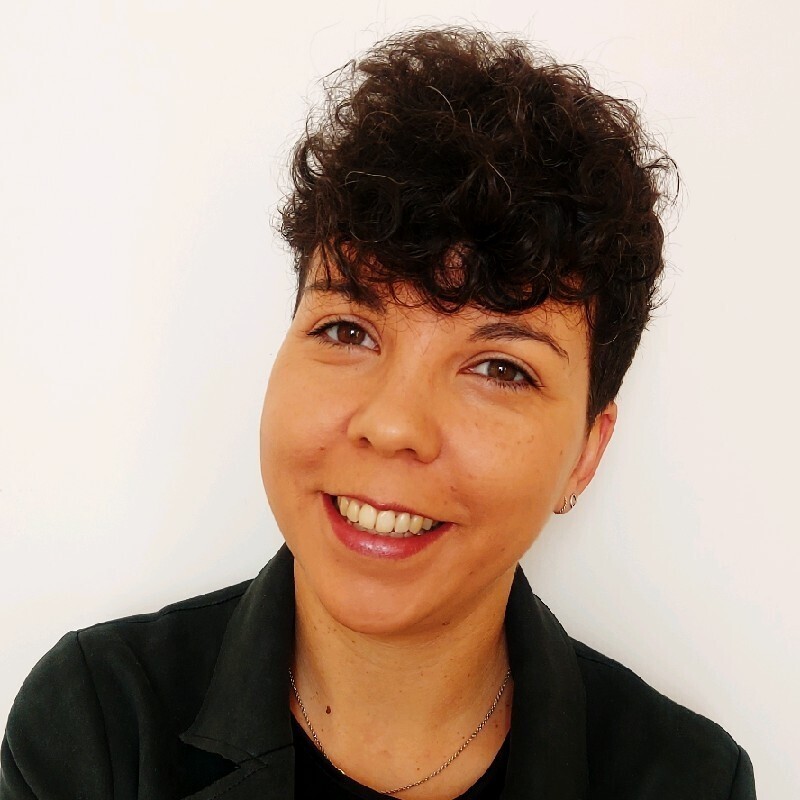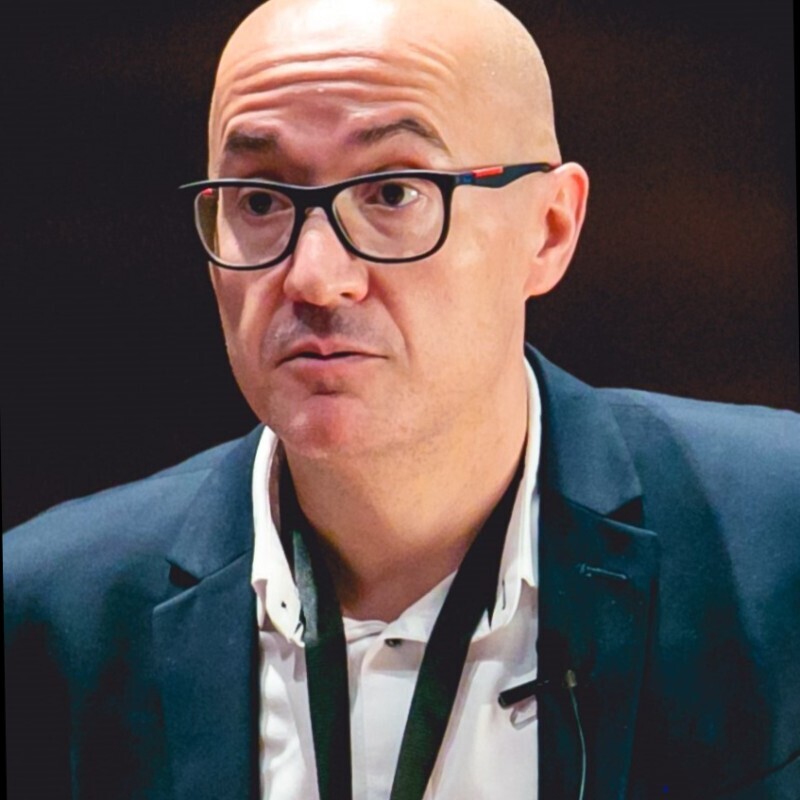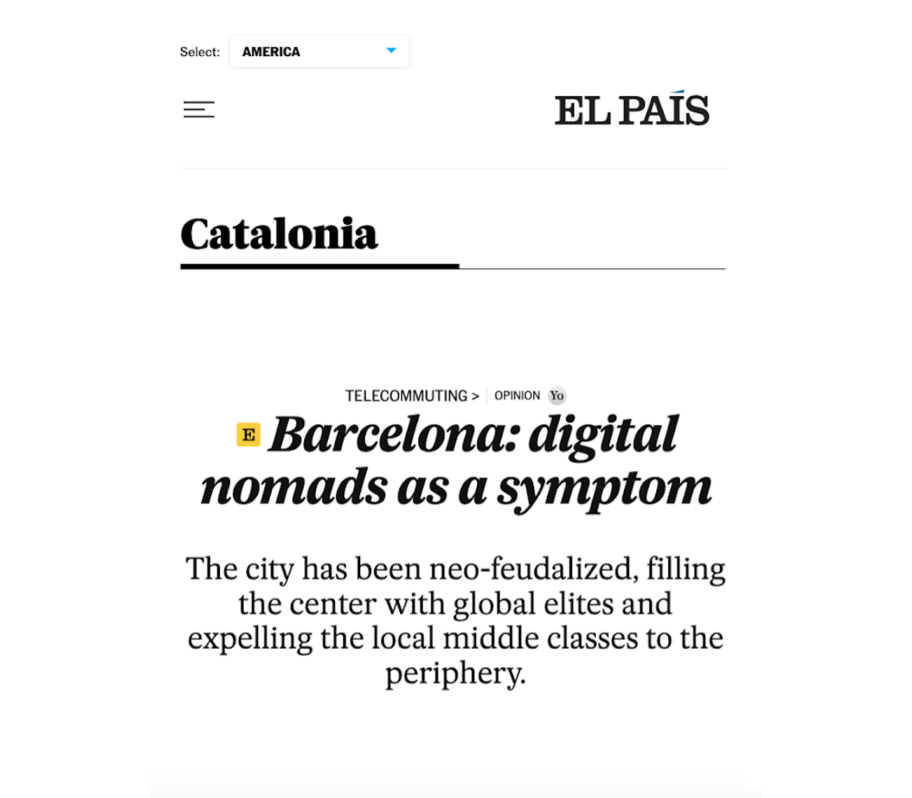CASE STUDY
Nethodology
How Nethodology measured the city of Barcelona’s online reputation with Brandwatch
Learn how Nethodology combined social listening with human expertise to monitor the city of Barcelona's reputation online.
When Nethodology first considered taking on the ‘Marca Barcelona’ project, owned by Barcelona City Council, they couldn’t have imagined the scale it would grow to. After all, monitoring the online reputation of a whole city is a big deal.
Barcelona’s City Council launched ‘Marca Barcelona’ to promote Barcelona’s international image and attract new investments. Nethodology were chosen as the partner to take on the research side of this project.
Using Brandwatch Consumer Research, Nethodology carried out a complex study to discover what people were saying about Barcelona in a digital context and identify the issues linked to the city in conversations, both locally and outside Spain.


“With this study, we wanted to give Barcelona’s Economic Development Department enough insights to attract talent and investment to the city.”
Brandwatch Consumer Research enabled the team at Nethodology to gather and analyze large volumes of data, including:
- An average of 500k mentions per month
- Comparison data between 18 countries and five continents
- Mentions about Barcelona in 15 languages
Research steps
Nethodology identified four key steps of the research project for monitoring the entire conversation about Barcelona:
- Remove irrelevant content
- Detect the most viral content
- Create an objective sentiment model
- Identify different communities
Step 1: Remove irrelevant content
The first challenge of the study was the polysemy of the word “Barcelona” itself. A whole bunch of mentions, for example, are not about the city but about Barcelona Football Club.
To filter and categorize all football-related mentions as “irrelevant,” the Nethodology team turned to Custom Classifiers, a feature within Brandwatch. In this case, Custom Classifiers are trained with examples given by the researcher to prioritize only relevant mentions of the city.
“We especially wanted to monitor the areas of economic promotion and talent so we could exclude sports and other irrelevant terms thanks to Custom Classifiers.” – Víctor Gil, Reputation Consultant at Nethodology.
“We especially wanted to monitor the area of economic promotion and talent, so we could exclude sports and other irrelevant terms thanks to Custom Classifiers.”
Step 2: Detect the most viral content
Sometimes, the most viral content (with the highest degree of engagement) does not come from the media outlet with the most reach.
Therefore, and in order not to rely on assumptions, the Nethodology team turned to BuzzSumo (a tool specialized in content marketing) to find the most shared content on the internet regarding Barcelona.
The examples below illustrate the types of insights the team was looking for.
“El Pais” has the largest weekly audience online; however, this news story about Barcelona received only 20 social interactions, discovered by BuzzSumo.
On the other hand, the news story published in the Periódico de Catalunya received much greater engagement, with a total of 48,000 interactions on social networks.
“BuzzSumo allowed us to determine which news stories were most shared online and differentiate news mentions that are sometimes confusing.”
Step 3: Measure social sentiment
The next step for the team was sentiment, and the Nethodology team had a very specific plan on how to measure it, so they decided to build their own custom model.
“In any brand reputation project, there is a need to determine what sentiment a piece of content has, so we created our own model to be as objective as possible when it comes to attributing one sentiment or another.” – Víctor Gil, Reputation Consultant at Nethodology
The Nethodology team aimed to be as objective as possible when categorizing mentions and assigning sentiment. They did it in three steps:
- Compilation of thousands of news items about Barcelona, along with the reactions that they provoke on Facebook
- Calculation of the net sentiment of each news item using this formula: Positive reactions – negative reactions
- Training an algorithm to analyze the net sentiment of news items
“The model is 84% accurate,” according to Patricia and Victor.
Step 4: Identify different communities
In addition to monitoring the online conversations, detecting the most viral news, and measuring sentiment, the Nethodology experts identified different communities by mapping the relationships that connect their members in a network.
“The goal was to identify key people, which groups make up the network, and what associations are formed between different people.” – Patricia González, Insights Manager at Nethodology.
According to Patricia, the interesting thing was monitoring the conversation of various communities after members were identified, especially at a group level rather than as individual users.
“The goal here was to identify key people, which groups make up the network, and what associations are formed between different people.”
The use of platforms such as Brandwatch and BuzzSumo has been key in achieving efficiency and saving time for the Nethodology team.
Processing high volumes of information and extracting meaningful insights has been the main obstacle that Nethodology has encountered in studying the digital footprint of Barcelona.
Leveraging cutting-edge AI and active social listening helped the Nethodology team fuel the 'Marco Barcelona' project with fascinating insights that would help bolster the case for attracting new investment.
This is just one way to use Brandwatch Consumer Research to understand brand reputation and much more. Read our other case studies to find out more about what's possible.

